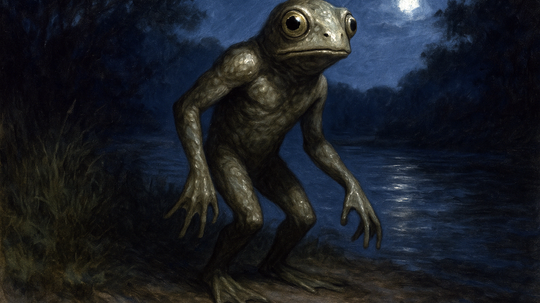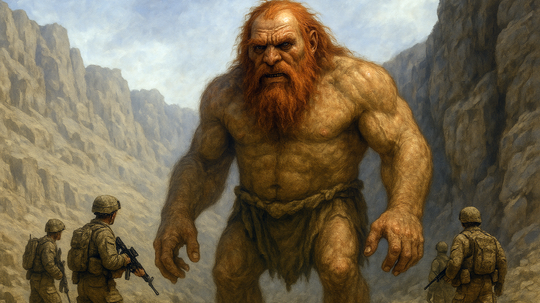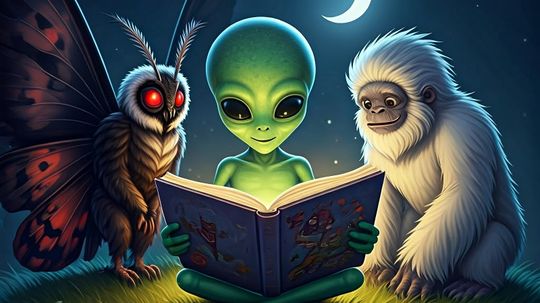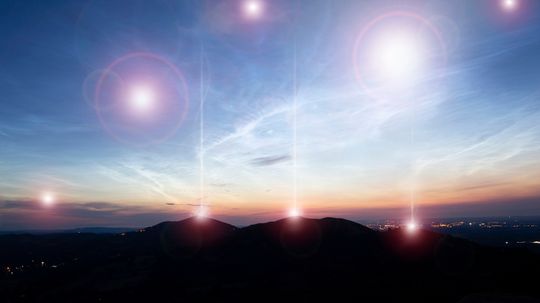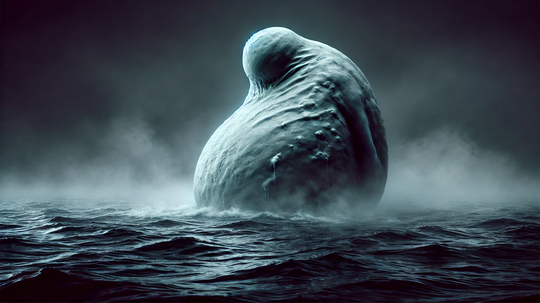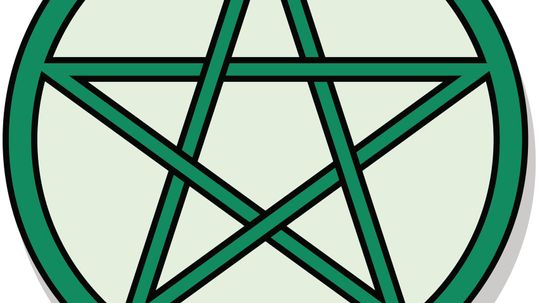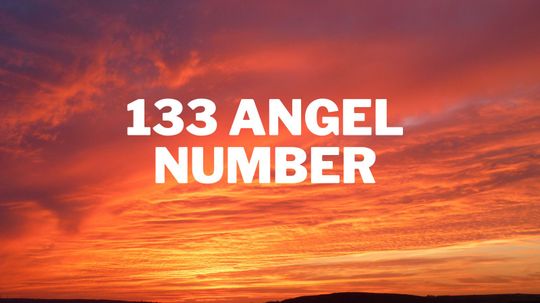Science Versus Myth
Are vampires real? What is an out-of-body experience? Are crop circles proof that aliens exist? HowStuffWorks explores what is real and what is urban legend with this collection of Science Versus Myth articles.

Top 10 Ghost Tours

Top 10 Hotels That Will Scare the Daylights Out of You

What's So Scary About The Winchester House Story?

The Pyramid in Antarctica Isn't Actually a Pyramid

The Spiritual Awakening Signaled by the 757 Angel Number

8888 Angel Number Meaning: Prosperity, Abundance, and Spiritual Growth

Spirit Guides Bring Believers Comfort, Insight, and Aid

Psychic Powers: Fun to Consider, Even Without Scientific Support

How to Manifest Love: Merging Mind and Heart

What Is a Group of Dragons Called? It's Almost Too Obvious

The Beast of Bray Road: Wisconsin's Claim to Cryptid Fame

Lougawou: A Haitian Vodou Werewolf

Do Marfa Lights Come From UFOs, Cars, the Military or Ghosts?

Solfeggio Frequencies: Healing Tones or Pseudoscience?

Is Sacred Geometry Related to Science or Is It Simply Beautiful?

What If Cows Didn't Exist?

What If Earth's Magnetic Field Flipped?

What If Humans Could Breathe Underwater?
Learn More / Page 2
The moon-eyed people legend describes a mysterious race of pale-skinned, blue-eyed people who supposedly lived in the Appalachian region before the Cherokee arrived. According to Cherokee legend, these people could not see well in daylight, forcing them to live in caves and only come out at night.
By Mitch Ryan
The Loveland Frogman is a legendary creature said to lurk near the Little Miami River region, 15 miles (24 km) outside the city limits of Cincinnati, Ohio. Reports of this bizarre being describe a frog-like humanoid monster, standing roughly 4 feet (1.2 m) tall on its hind legs, with large reptilian eyes bulging from a round, scaly head.
By Mitch Ryan
Have you ever heard of the fur trout? From the Great Lakes Region to the Arkansas River, surprising reports of these unusual fish (also known as the beaver trout) have fascinated fishermen and cryptid enthusiasts alike for generations.
By Ada Tseng
Advertisement
The Giant of Kandahar tale tells of U.S. military personnel encountering a massive, red-haired humanoid in the mountains of Afghanistan.
By Mitch Ryan
The Snallygaster is a bizarre and downright terrifying cryptid said to haunt the skies of Maryland. Described as a winged creature with half bird features and half reptile characteristics, this beast has been part of local folklore for centuries.
By Mack Hayden
A mysterious cryptid, an eerie encounter and one of the strangest stories to come out of West Virginia: That sums up the Flatwoods Monster.
By Yara Simón
Conspiracy theories surface around pretty much everything, especially on the internet. So when 2016 satellite imagery showed what appeared to be a pyramid in Antarctica that was large enough to be seen from outer space, people had questions.
By Mitch Ryan
Advertisement
You would have to drive 500 miles (805 km) east of the tiny desert town called Marfa to reach Dallas, and just 60 miles Southwest would take you to the Rio Grande and the Mexican border. This desolate landscape is dominated by Mitchell Flat, broken intermittently by low, rolling peaks of the Chinati Mountains.
By Mitch Ryan
The Ningen is a creature so strange, so elusive and so deeply mysterious that images of the alleged beings vary immensely. This bizarre, humanoid figure supposedly inhabits Antarctic waters, and over the past few years, reports have surfaced claiming its existence.
By Yara Simón
Solfeggio frequencies are specific sound frequencies that have been around for centuries and are believed to have powerful effects on the human body and mind. Many claim that these six measurable tones can stimulate healing, reduce stress, and even awaken intuition. But what does the science actually say?
By Zach Taras
9 of Pentacles tarot card symbolizes independence, financial success, and self-sufficiency. Discover how this card reflects personal achievement and luxurious living.
By HowStuffWorks
Advertisement
949 angel number signifies endings, spiritual growth, and new beginnings. Trust your path, embrace change, and align with your higher purpose.
By HowStuffWorks
155 angel number signals change, independence, and new beginnings. Trust your path, embrace opportunities, and take bold steps toward your dreams.
By HowStuffWorks
722 angel number signals spiritual growth, intuition, and divine support. Trust your path, embrace inner wisdom, and align with your higher purpose.
By HowStuffWorks
2020 angel number symbolizes balance, faith, and new opportunities. Trust the universe, embrace change, and align with your higher purpose.
By HowStuffWorks
Advertisement
Angel number 4 symbolizes stability, determination, and divine support. Trust your path, stay disciplined, and build a strong foundation for success.
By HowStuffWorks
2727 angel number symbolizes balance, faith, and inner wisdom. Trust your intuition, embrace change, and align with your spiritual purpose.
By HowStuffWorks
133 angel number signals growth, creativity, and divine support. Trust your path, embrace positivity, and align with your higher purpose.
By HowStuffWorks
737 angel number signals spiritual awakening, intuition, and self-discovery. Trust your inner wisdom and embrace the guidance of the universe.
By HowStuffWorks
Advertisement
922 angel number symbolizes balance, faith, and spiritual growth. Trust your path, embrace change, and align with your soul’s higher purpose.
By HowStuffWorks
11111 angel number signals new beginnings, spiritual awakening, and manifestation. Align your thoughts with positivity to create your desired reality.
By HowStuffWorks
9999 angel number signals spiritual growth, transformation, and completion. Embrace endings as new beginnings and align with your higher purpose and discover what it may be trying to communicate to you.
By HowStuffWorks
1233 angel number symbolizes growth, creativity, and divine support. Trust your journey, embrace change, and align with your higher purpose.
By HowStuffWorks
Advertisement
626 angel number symbolizes balance, love, and stability. Trust in divine support, nurture relationships, and create harmony in all areas of life.
By HowStuffWorks
345 angel number signals change, progress, and personal growth. Embrace new opportunities, trust your path, and align with your divine purpose.

